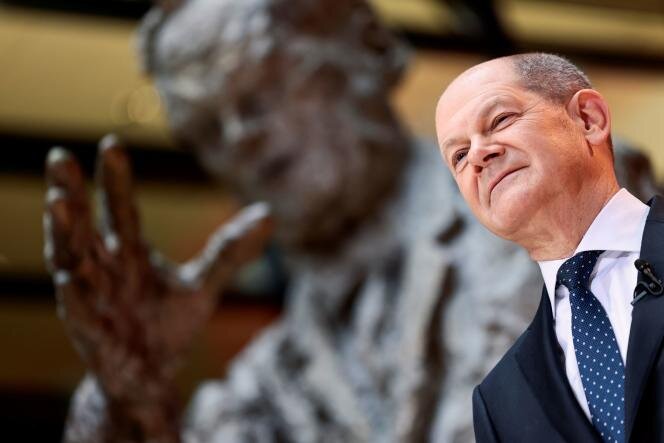New chancellor in the office: What to expect?

TEHRAN— Olaf Scholz, or the “Scholzomat”, has been designated as the new German chancellor as Angela Merkel who kissed power goodbye on December 2.
Scholz is a Social Democrat, who served as vice chancellor to Angela Merkel and as minister of finance since March 2018. He was the deputy leader of the Social Democratic Party (SPD) from 2009 to 2019.
Originally established as a Marxist party, the SDF was founded in 1875.
When Ebrahim Raisi won the June 18 presidential elections in Iran, Scholz came on TV and said that the revival of the Joint Comprehensive Plan of Action (JCPOA) is now more difficult.
“It is a laborious process and it’s now going to get more laborious in light of the elections that have taken place,” Scholz said on June 27.
“But the fact that it is so hard and laborious does not change the fact that this is very perilous for Israel, the Middle East and Europe.
We have to hang in there and try to get something good out of it and we hope that we will be able to achieve something with the new U.S. government, despite the gloomy prospects which I don’t think can be sugar-coated,” he continued.
Implying that Raisi is a hardliner, Scholz said that the hard line clearly achieves nothing, later criticizing former U.S. President Donald Trump over his unilateral withdrawal from the 2015 nuclear deal.
What is more interesting is Scholz’s lenient tendency to side with Israel. His comments on the Vienna talks in June met with the Israeli appreciation. Of course, this was predictable, as the new chancellor drew a very foggy picture from the Vienna talks in contrast with the reality on the ground.
Planting seeds of despair is an old media trick that the Tehran Times recently examined. All sides are planning to launch a blame game against Iran during the fresh round of talks in Vienna. Scholz started this game earlier than the other European troika leaders. Liz Truss, UK Foreign Secretary took the flag on 28 November and co-wrote an article with the Israeli Foreign Minister, Yair Lapid. France’s leader, Emmanuel Macron, hammered the nail in the coffin on December 3, saying that the new round of talks was not “successful.”
Iran will have a difficult job in Vienna with the current line-up in the European troika. The Scholz-Johnson-Macron triangle is not focused on reviving the 2015 nuclear deal. Iran has showed its seriousness by presenting two very detailed and technical draft proposals.
Perhaps the E3 must stop “evaluating and assessing” the Iranian delegation, as Iranian Foreign Minister Hossein Amir Abdollahian said on December 6 during a joint press conference with his Syrian counterpart.
“The other side did not come to negotiate. They came to evaluate the Iranian delegation,” he said.
It is time to “negotiate.”
Leave a Comment